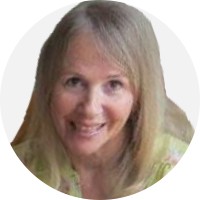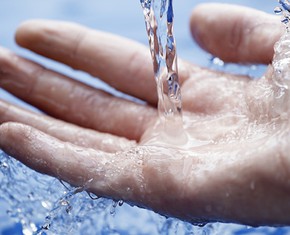The views expressed in our content reflect individual perspectives and do not represent the authoritative views of the Baha'i Faith.
When you embark on a journey of personal search, you have to be pretty dissatisfied with the status quo.
Sometimes it starts off gradually—with a little itch of discontent over life as it is, or a soft inner voice whose whisper may slowly grow to become a insistent and intolerable interior voice demanding something more meaningful in your life.
Some people find ways to silence that voice, to bury that feeling in work or alcohol or other distractions. For others, like me, the feeling of discontent grows until you just can’t go on pretending to feel whole and complete without resolving it somehow.
One philosopher advised “Never ask a question if you don’t want to hear the answer to it.” If we truly want to ask about the deeper meaning of life, that requires a readiness to open ourselves to challenging everything we believe about who we are, why we are here and where are we going.
How badly do you really want to know the answers? How far are you prepared to go, in order to make this journey? Baha’u’llah describes the experience like this:
But, O my brother, when a true seeker determineth to take the step of search in the path leading to the knowledge of the Ancient of Days, he must, before all else, cleanse and purify his heart, which is the seat of the revelation of the inner mysteries of God, from the obscuring dust of all acquired knowledge, and the allusions of the embodiments of satanic fancy. He must purge his breast, which is the sanctuary of the abiding love of the Beloved, of every defilement, and sanctify his soul from all that pertaineth to water and clay, from all shadowy and ephemeral attachments. – The Book of Certitude, p. 192.
Purging oneself of all acquired knowledge is an enormous undertaking. To do that, I have to challenge my religion, my culture, my family values, my heritage! If I could even begin that process, what would I put in its place? That requires so much change!
In the New Testament Sermon on the Mount, St. Matthew likens the acquisition of new beliefs to putting new wine in old bottles; because the practice of recycling old wineskins to store fresh wine risked bursting them. It also applies to the practice of using new cloth to patch older clothing, which often results in a tear as the patch begins to shrink.
Acceptance of new beliefs necessitates our souls being willing to experience challenges that will stretch us to the limit. How open to stretching and change are you?
In 21st century parlance, becoming open to the acceptance of a new religion can be like trying on a new shoe; no matter how attractive it might appear, at first it probably won’t fit entirely comfortably. But at that moment, remember back to those days when you so badly wanted change in your previous life.
So when you search for something new, be prepared to be stretched! We have to accept this process in order to become comfortable with the changes and challenges required by the reordering that must follow acceptance of new beliefs. We need to be willing to purge our habits, customs and patterns of thought from previous conceptions—which obviously weren’t working for us, anyway.
Fortunately for me, when I almost subconsciously began looking for a spiritual path, it wasn’t with the expectation of an immediate fit. I didn’t expect to fully understand and accept every aspect of whatever I discovered, or understand it right away. This proved essential because certain aspects of the Baha’i Faith didn’t immediately conform to the old beliefs I held at that time.
When you sincerely want to move on from the limitations of previous understanding, you have to expect challenges to the present norm. That’s what a dynamic living religion does—it brings real change to the lives of individuals and the life of society itself. Otherwise, if it just continues to status quo, it serves no valuable purpose at all.
Fortunately, by the time I had readily accepted the new teachings of the Baha’i Faith, I learned through experience and the Baha’i writings that:
The reality of man is his thought, not his material body. The thought force and the animal force are partners. Although man is part of the animal creation, he possesses a power of thought superior to all other created beings. – Abdu’l-Baha, Paris Talks, p. 24.
For me, my mind and thoughts are “where I live;” and I did not want to have that precious part of who I am under some negative influence beyond my control. For the same reason, abstaining from drugs and alcohol was easy for me. I did not want to subject either myself or my friends and family to the damaging effects that were all too readily observable.
Also, when I became a Baha’i fasting was a totally alien practice for me; a brief flirtation with the Grapefruit Diet decades ago defined the limits of my own dietary restrictions. Today fasting is becoming better known and valued, both in terms of the measurable beneficial effects on the human body and also as the excesses of our Western civilization foster growing recognition of the need to moderate and control our physical appetites. Practiced in this light, fasting becomes an essentially spiritual observance as we increasingly detach from the material aspects of life.
When we are truly committed to the search after personal truth, I learned, we have to be willing to challenge what we previously believed to be true. This journey might endorse values that don’t conform to present social norms, and may even conflict with important family or cultural beliefs.
Those true seekers who first respond to an inner voice, and then determine to take the step of search in the path leading to an eternal spiritual journey, will continue growing in knowledge, and in working for personal and social change. Are you willing to respond to such change, and begin to achieve a way of life that is detached from excess, intrinsically harmonized, at peace with your own self and with all that is? Step forth!
















Comments
Sign in or create an account
Continue with Googleor